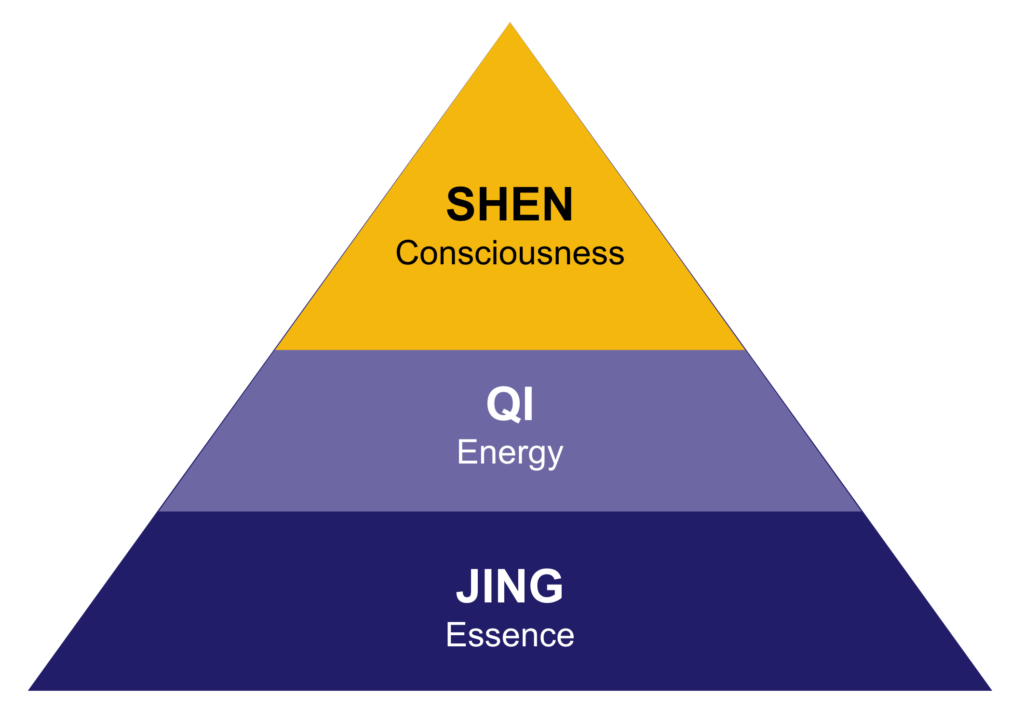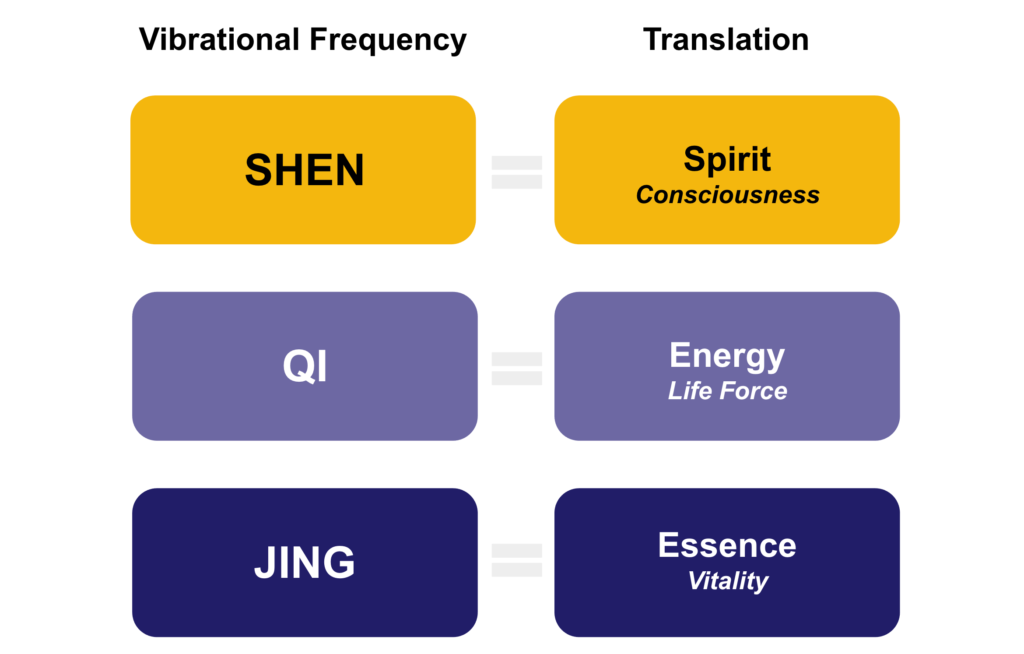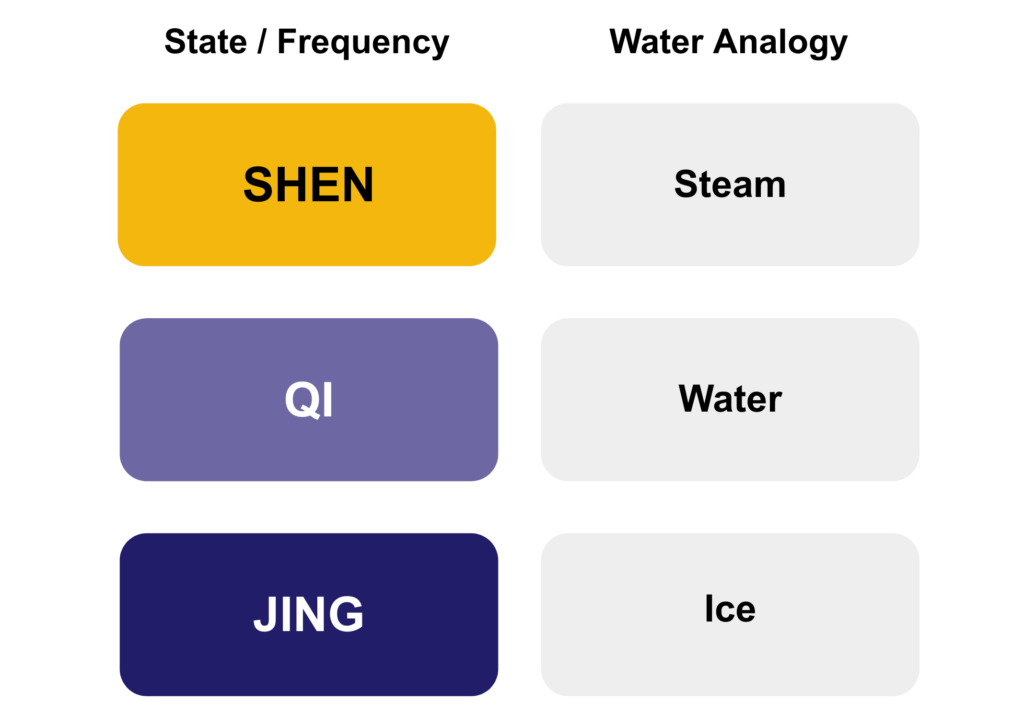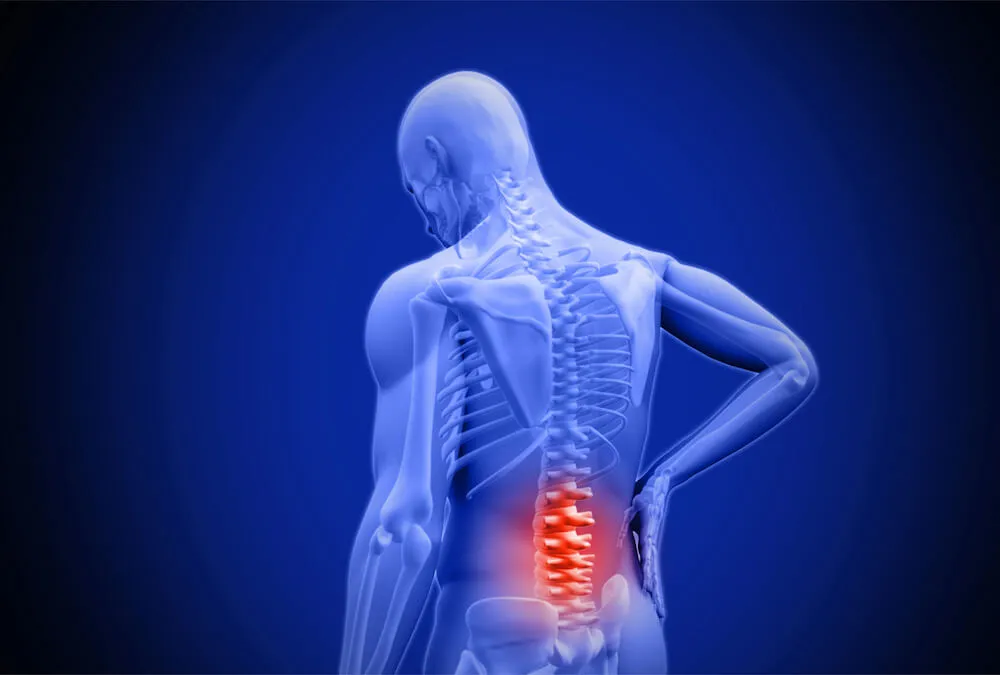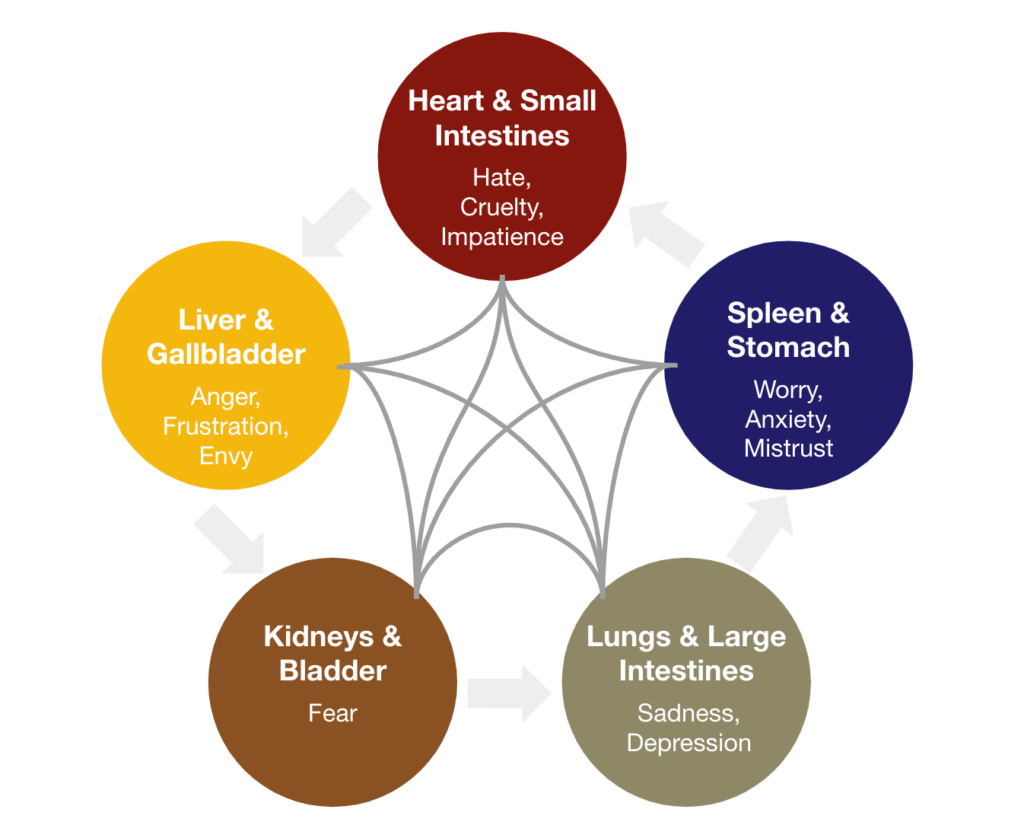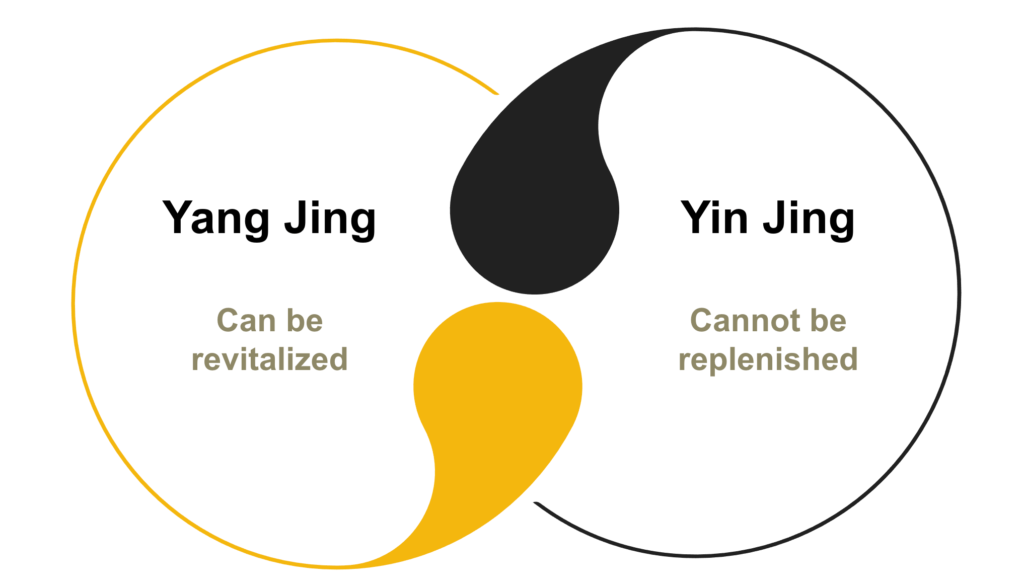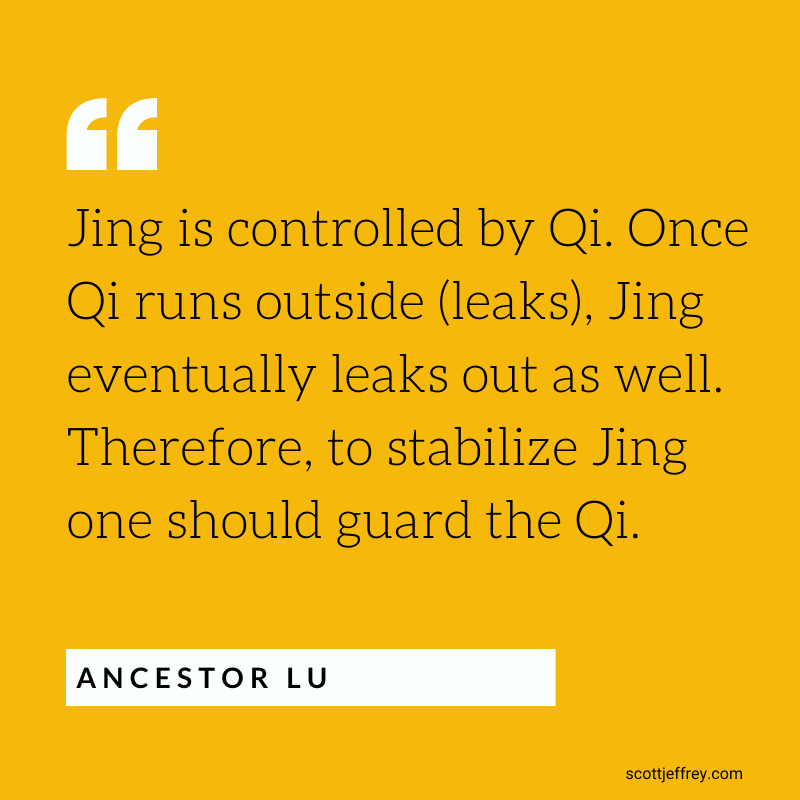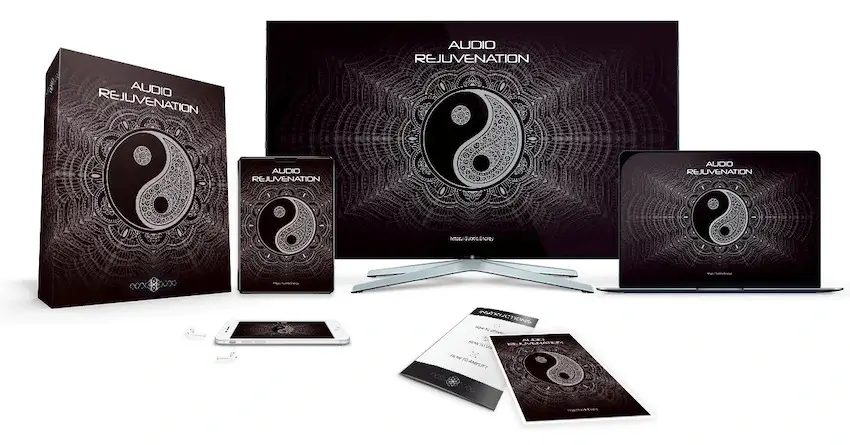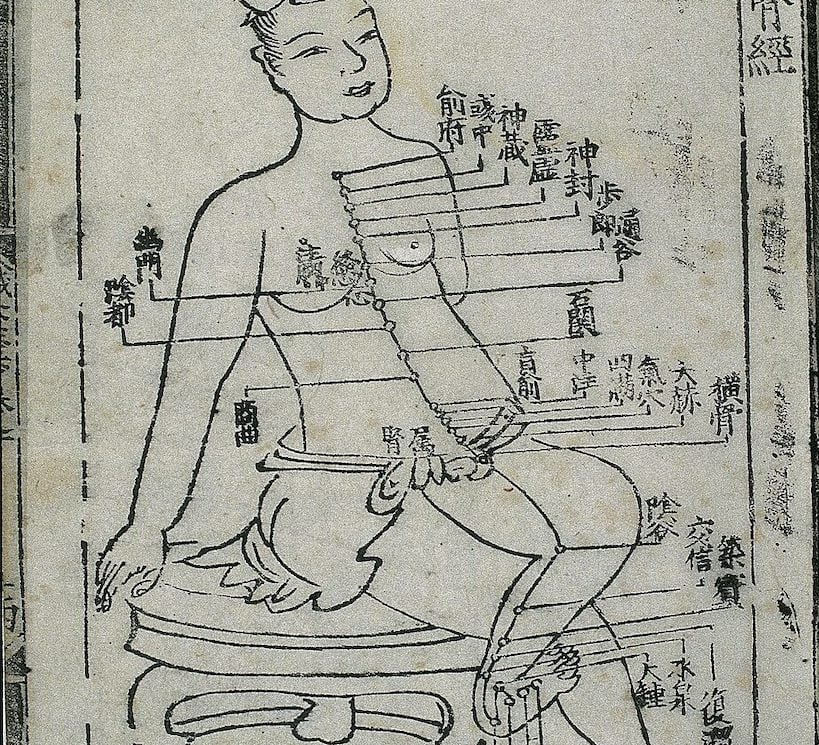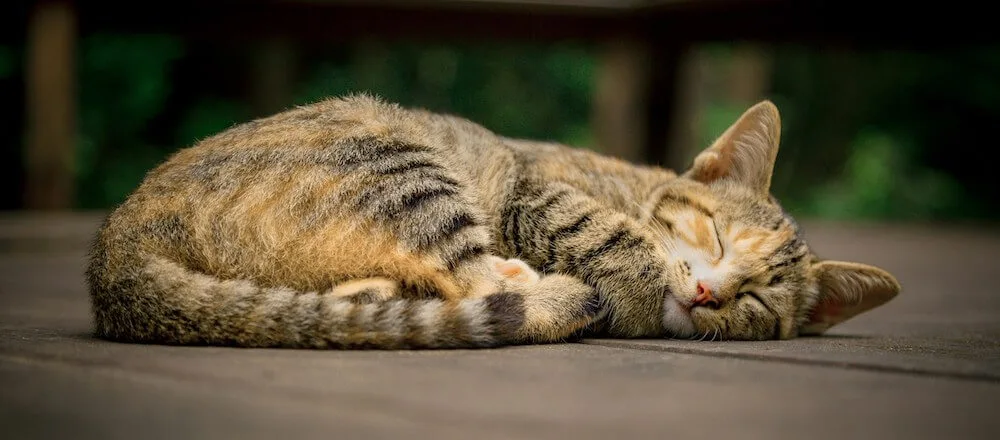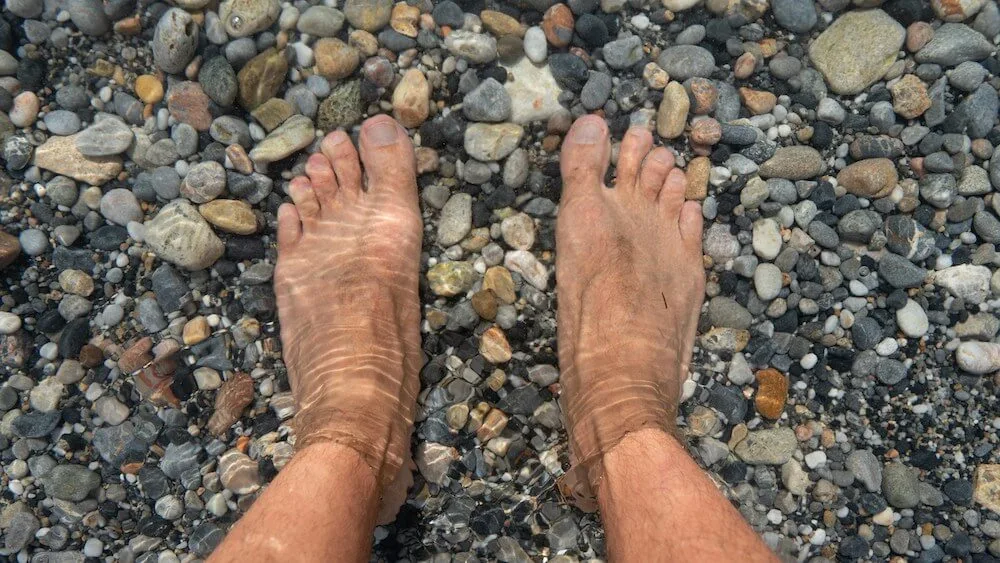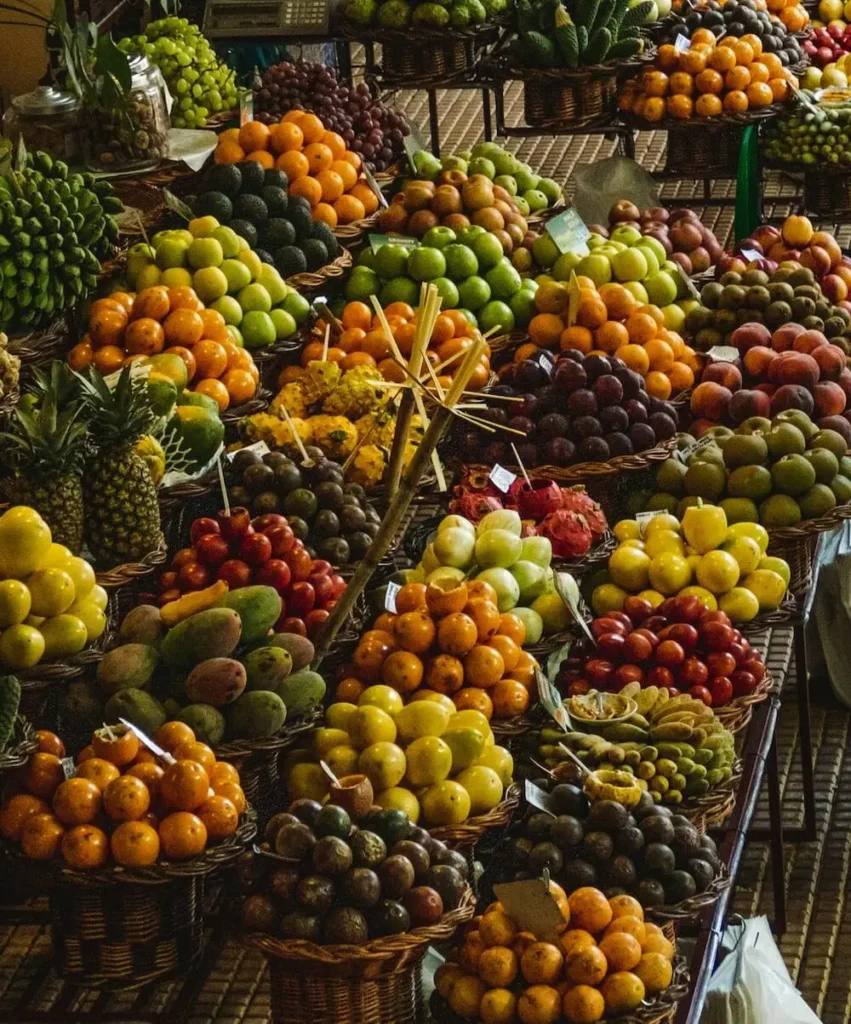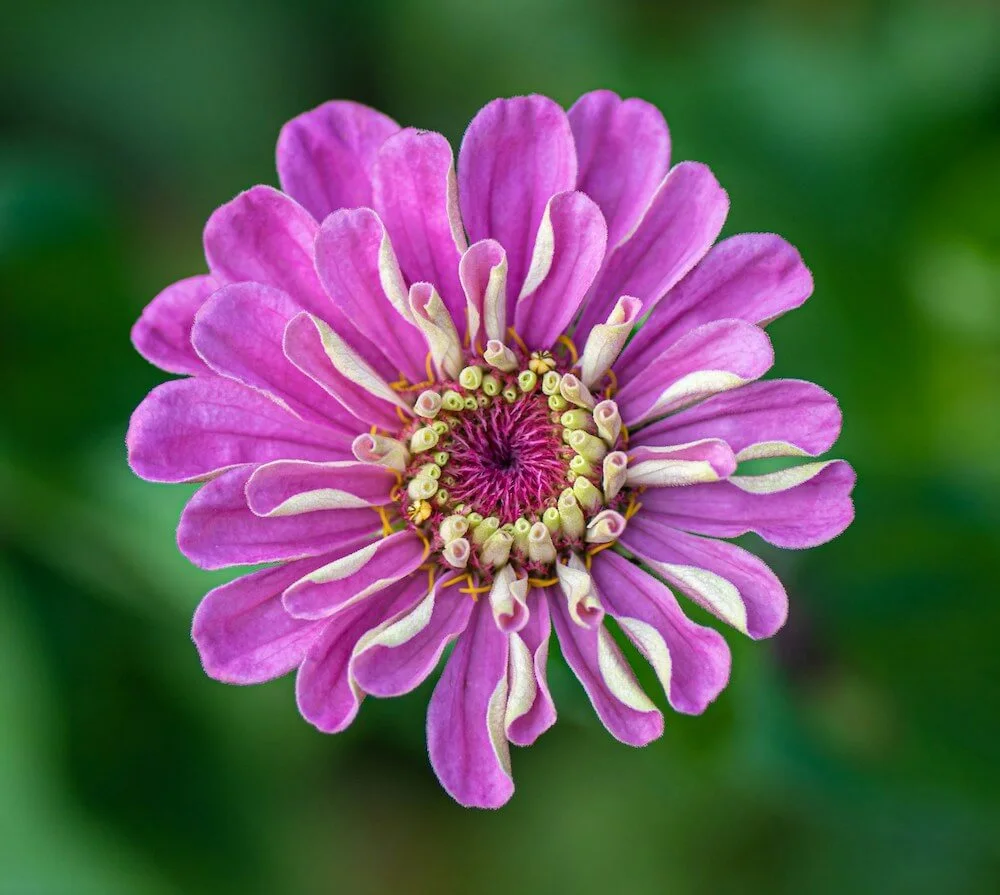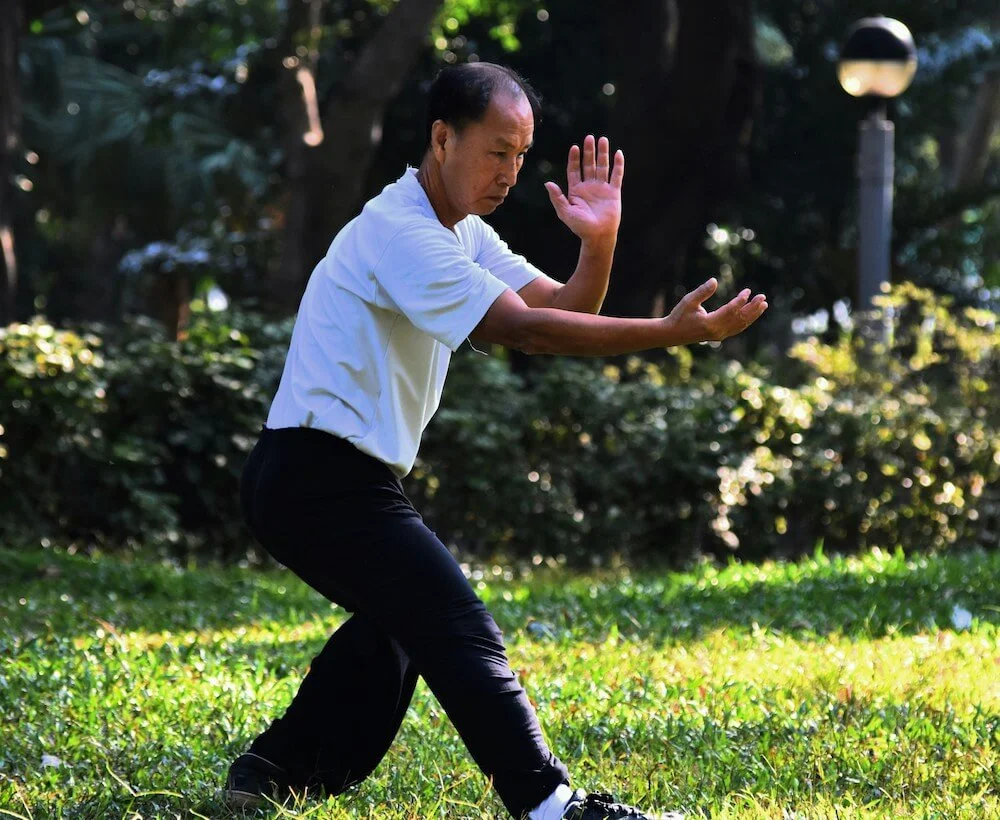What is Jing?
What does it mean for your overall health and well-being?
What is the significance of Jing in the Taoist understanding?
What can cause premature depletion of our vitality?
Can Jing be restored, replenished, and used to achieve longevity?
In this in-depth guide, we’ll address all of these questions and much more.
Let’s dive in …
What is Jing?
Jing is an integral concept in the Taoist arts. Jing represents the primal essence and vitality in all living beings.
This vitality is ultimately a vibrational energy frequency. This frequency is less dense than matter (but just barely).
This essence is primordial, “gifted” to us at birth. It represents the blueprint of our physical design and the base-level fuel for our existence. To the Taoists, Jing is the primary determinant of our genetic potential for a long, healthy life.
A person brimming with Jing will be strong, resilient, and filled with vitality, able to achieve longevity.
Jing’s Role in the Body
From the perspective of Traditional Chinese Medicine (TCM), Jing supports and stimulates:
- Growth and development (through each stage of life)
- Healthy aging
- Sexual and reproductive functions (including puberty, fertility, and menopause in women)
- Bone health (including development of the bone marrow, spinal cord, and brain)
- Defense against illness (Jing is closely linked with guardian qi that protects the body from illness)
This life essence is associated with the reproductive hormones, the kidneys, and the adrenal glands. Jing is said to be mainly stored in the kidneys (as well as other organs highlighted below).
This life essence is depleted throughout life. Jing depletion is correlated with aging.
Many factors can rapidly and prematurely deplete one’s level of Jing. When this vitality is prematurely depleted, it leads to rapid aging, illness, and eventually, death.
The Three Treasures (San Bao)
The Three Treasures
Jing is best defined in the context of what the Taoists call the Three Treasures (San Bao). The Three Treasures are:
- Jing
- Qi
- Shen
The Three Treasures represent three vibrational frequencies that make up the “energy of the Tao.”
These three frequencies are likened to the three states of water: ice, liquid, and gas. Similar to these three states of water, the three treasures ultimately represent one substance, but in different expressions.
Jing (Essence)
In its densest state, water is solid ice. This dense condition is similar to Jing essence.
Jing is the lowest vibration of the Three Treasures. Like ice, it’s always on the verge of transforming back into water (Qi).
Many people mistakenly think Jing is synonymous with sexual energy or seminal fluid. While Jing does include sexual energy, it’s not technically the same thing. However, this vital essence is concentrated in the sperm and ova.
Jing most closely translates to “Life’s Essence” or “Vitality” in English.
Qi (Energy)
As the steam cools, water transforms into a liquid state. Water is like Qi energy.
The Jing Essence of the body converts to Qi, which most closely translates to “energy.”
Qi is a higher vibration than Jing, and it transports information throughout the body’s energy system.
The food we eat and the air we breathe also convert to Qi energy.
Shen (Spirit)
Water is steam in its most ephemeral state. Steam is akin to Shen.
Shen, the highest or most refined vibration of the three treasures, is the energy of consciousness itself. Many schools of Taoism consider the Shen to be the individual’s spirit.
In Western integrative psychologies, Shen is akin to the higher self or higher consciousness.
Shen manifests as a bright white light, and its frequency is closest to “Heaven.” In its purest expression, Shen is nondual (impersonal).
Three Treasures Water Analogy
The Relationship Between Jing and Qi
If you’re new to this Three Treasure framework, it’s easy to get confused between Jing and Qi.
To clarify, this automotive analogy is often used:
Jing represents the car’s battery, and the Qi is the fuel. When the battery is fully charged and the tank is filled with gas, the car runs.
However, if the battery (Jing) is dead, even with fuel (Qi) in the tank, the car won’t run.
To extend this analogy, consider a hybrid vehicle that utilizes both batteries and gasoline to run.
In this case, as the car runs using gasoline, it can simultaneously charge the batteries, which helps extend the fuel mileage.
So, essence and energy have a symbiotic and integral relationship with each other, as we’ll see below.
2 Types of Jing
There are said to be two basic types of Essence:
- Prenatal (Congenital) Jing
- Postnatal (Acquired) Jing
Most concepts within the Taoist tradition have these two basic components: one that we’re born with (congenital) and another that we build using the external world (acquired).
Prenatal Jing (Congenital)
Prenatal or Congenital Jing is gifted to us at birth. We inherit this type of essence from our parents and our family lineage. The health of our family line, astrological circumstances, and previous births are factors that help determine the quality of our vitality.
The prenatal Jing becomes the energetic potency for our entire lives. This essence is the building block of our overall constitution. Congenital Jing is said to be stored in the kidneys.
Postnatal Jing (Acquired)
Postnatal or Acquired Jing is developed through proper nutrition, correct breathing, rest/relaxation, internal cultivation, and one’s overall lifestyle. By maintaining a healthy reserve of Acquired Jing, we ensure that the body doesn’t need to depend too heavily on its congenital essence.
Referring back to the automotive illustration, hybrid vehicles use gasoline (Qi) to charge the batteries (Acquired Jing) to extend the mileage.
____________
Some claim there’s a third type of vital essence called Kidney Jing. This would be the Jing used to create Qi in the body. However, I suspect this “Kidney Jing” is just another way of expressing Wei Qi (guardian qi) or Yuan Jing (congenital essence). We’ll address this topic further under “Can Jing Be Replenished?” below.
Symptoms of Low Jing Levels
With a full reserve of Jing, the body is strong, vital, vigorous, energized, and youthful. When this essence is depleted, either through imbalance, excess, or illness, many symptoms manifest.
Ultimately, our level of Jing naturally declines as we age. Jing begins to decline rapidly around mid-life. On average, women’s essence starts to rapidly decline around age 42, while men experience a substantial decline around age 48.1Damo Mitchell, White Moon on the Mountain Peak, 41- 43.
Regardless, there are many things we can do to slow this decline and maintain healthy reserves of Qi in the body.
Many of the following symptoms occur in middle-aged men and women as Jing depletes through the course of life.
Common symptoms of Jing depletion (weak Kidneys) include:
Stiffness (bones/joints)
Pain in lower back & knees
Impotence
Greying hair
Hair loss
Low libido (sexual vitality)
Weak immunity
Forgetfulness (cognitive problems)
Chronic miscarriages
Feeling cold (especially hands/feet)
Premature aging
Hearing difficulties (tinnitus)
Low sperm count
Hot flushes (in women)
Increased susceptibility to illness
Chronic inflammation
Infertility
Dizziness
Poor concentration/memory
Macular degeneration (vision loss)
Chronic fatigue, knee pain, and lower back pain are common physical symptoms of kidney weakness. Many individuals, especially in mid-life, think it’s “normal” to experience these symptoms.
However, they are often just a sign of internal weakness (depletion) or a Yin-Yang imbalance in the kidneys. In most cases, these imbalances and deficiencies can be corrected.
12+ Common Causes of Jing Leakage
In the context we’re using here, “leakage” means a loss of energy and vitality that should otherwise be stored.
Numerous common causes and factors lead to Jing depletion and leakage, including:
Sex (especially for men)
Menstrual cycle for women
Pregnancy
Childbirth
Overworking
Excessive media consumption
Serious illnesses
Overthinking/excessive rumination
Poor sleep habits
Non-native EMF
Stimulants like coffee
Chronic stress
Bad relationships
Physical trauma (accidents, etc.)
In general, stress, overexertion, inflammation, sex (especially for men), and excessive behaviors rapidly deplete Jing.
To extend the vehicle analogy: What happens to your vehicle when you leave the interior lights on while it’s not running?
Eventually, the battery will die and need to be recharged using external methods.
How Negative Emotions Disrupt Jing
In Chinese organ theory, Yin Jing is stored in the kidneys, liver, lungs, heart, and spleen. Each of these organs can leak Jing, and they often do.
The kidneys are considered to be the chief storehouse of essence for the entire body. In the context of Chinese medicine, related kidney functions and structures include the adrenal glands, reproductive glands, associated hormones, bone marrow, and much more.
Interestingly, in Qigong theory, each organ is also associated with specific emotions.
For example:
| Organ | Related Emotion |
|---|---|
| Kidneys | Fear |
| Liver | Anger |
| Lungs | Grief |
| Heart | Hatred |
| Spleen | Worry |
So consider what we’re doing to our life essence if we’re constantly:
- Living in anxiety and fear (kidneys)
- Repressing our anger and rage (liver)
- Not processing our grief (lungs)
- Holding onto hate and resentment (heart)
- Worried about the future (spleen)
Persistent negative emotions deplete Jing.
Conversely, a healthy reserve of life essence helps restore and strengthen these vital organs.
Learning how to work with repressed emotions and develop greater emotional awareness is highly practical in the context of Jing maintenance.
Sex Rapidly Depletes Life Essence
According to the Taoist tradition, sex is the number one way men (in particular) rapidly deplete their Jing. Sexual activity taxes the kidneys, and as we saw above, the kidneys are the primary storehouse of Jing.
Many new-age and quasi-cultish Qigong books suggest that men only lose Jing via ejaculation. While men certainly do lose Jing via ejaculation, sexual activity of any kind also depletes one’s essence. Sexual activity becomes a bigger issue at mid-life, when one’s essence naturally starts to deplete rapidly.
As such, moderation is recommended. For more on this topic, see Sexual Energy Transmutation: A Practical Beginner’s Guide to Inner Alchemy. Men who experience Jing depletion will benefit significantly from a period of abstinence.
For women, the primary way women deplete their essence is through their menstrual cycle (as well as pregnancy and childbirth). In fact, female Taoists developed energetic methods to reduce and stop menstruating at a young age to avoid this Jing depletion.
Coffee Indirectly Depletes Jing
Coffee doesn’t deplete essence directly. Instead, coffee overstimulates kidney energy, which can lead to the depletion of one’s life essence over time. The way it was described to me by an acupuncturist was, “Coffee squeezes the adrenal glands.”
Concerns with coffee, however, are primarily for individuals who are already experiencing signs of depletion (as highlighted above). Signs like weakness in the knees, lower back pain, cold hands, or premature aging are common symptoms of kidney deficiency.
This article offers additional suggestions from a TCM perspective to help you reduce the adverse effects of drinking coffee.
(Also, to be “fair and balanced,” this article highlights the potential energetic benefits of coffee from a TCM perspective. But, given the noticeable effects coffee/caffeine has on the body and brain, I find it difficult to argue in favor of this beverage—from a strict “vitality” perspective.)
Non-Native EMF Disrupts Qi
While you won’t find this comment in any ancient Taoist or TCM text, man-made EMF weakens our Qi and can lead to essence depletion. Radiation from our devices, Wi-Fi, and the alternating current (AC) in our homes and power lines disrupts our Qi flow and weakens our Guardian Qi.
As a consequence, excessive exposure to harmful EMF can deplete our essence over time.
For this reason, it’s beneficial to ground yourself outside (also called “earthing) as often as you can. Non-native EMF creates inflammation in the body. Inflammation depletes our Jing. Grounding has been proven to reduce inflammation.
Can Jing Be Replenished?
So here’s the BIG question: Can you get back lost Jing?
The short answer is: I don’t know. I’m not an expert Chinese medical doctor nor a master energy cultivator.
And even if you meet one of the two, the answer you get will largely depend on who you ask.
Let’s briefly highlight the complexity of this question.
Congenital Jing vs Acquired Jing
Most experts seem to agree that Congenital Jing can not be replenished. This makes sense: what you have at birth is what you get for your lifetime.
But, what about your postnatal or Acquired Jing? Can this be replenished?
Some Chinese medical practitioners say that Acquired Jing can be restored by taking specific herbs. Some adept internal energy practitioners say that this Jing can be replenished through specific advanced cultivation practices.
The answer to this question may also come down to nuance and semantics.
Yin Jing vs Yang Jing
For example, in the Taoist and TCM lexicon, they differentiate between Yin Jing and Yang Jing.
It’s said that Yin Jing (stored in the organs) cannot be replenished, while Yang Jing can be revitalized.2https://acupuncturetoday.com/article/32900-replenishing-and-restoring-jing
Jing vs Yuan Qi
To complicate matters further, Chinese medicine divides the Three Treasures—Jing, Qi, and Shen—into Yuan Jing, Yuan Qi, and Yuan Shen. Yuang Jing translates to “original essence.”
In most cases, when people discuss Jing and “restoring” methods, they are referring to ways of strengthening Yuan Qi. (Again, there are a lot of nuances and subtleties here.)
Yuan Qi represents the energy and vitality stored in the kidneys.
Why It Doesn’t Matter What We Call It …
Ultimately, whether or not you can replenish lost Jing likely won’t matter to most individuals.
Why? Because either way, you CAN:
- Stop leaking Jing,
- Strengthen the functioning of organs that store our essence, and
- Restore a noticeable level of one’s vitality and Yuan Qi.
Consequently, cultivating longevity is a viable goal in most cases.
How to Stop Leaking Jing
First, if you’re dealing with the low Jing symptoms highlighted above, you might consider finding a qualified Chinese herbalist or medical practitioner.
I went through a period of depleted Jing (Yin deficiency/kidney weakness) in my late 30s. I experienced persistently cold feet (even in the hot summer) and weakness in the knees.
Working with a trained practitioner, I took specific Chinese herbal formulas and went to weekly acupuncture for months. It took a while to reverse and repair the issue.
To Stop the Leakage, First …
In general, if you’re experiencing severe depletion symptoms, consider experimenting with the following:
- Stop having sex for a while (complete, but temporary abstinence).
- Do whatever you can to reduce any signs of chronic inflammation (covered below).
- Avoid drugs and alcohol (including stimulants like coffee).
- Reduce your usage of technology (especially in the evening before bed).
- Avoid taking over-the-counter drugs that can damage the kidneys and liver (see below).
- Rest, nap, and sleep to restore your natural energy level.
Remember, stress, chronic inflammation, negative emotions, poor eating habits, and an overall unbalanced or destructive lifestyle can all drain our essence.
Also, be aware that many over-the-counter drugs like ibuprofen can weaken and damage the kidneys and liver.3https://www.drugs.com/medical-answers/ibuprofen-bad-kidneys-liver-3574924/
Photo by Mahdi Kordi (Unsplash)
15+ Medicinal Herbs to Help Preserve Jing
For thousands of years, medicinal herbs, roots, and mushrooms have been used to preserve vitality in Chinese medicine.
Two classes of herbal remedies can help preserve Jing:
- Adaptogenic herbs
- Jing tonics
Let’s run through some powerful examples from each category.
Adaptogenic herbs
Adaptogens can help reduce stress and inflammation while slowing down Jing depletion.
Adaptogenics herbs used in Chinese medicine include:4https://www.acupuncturetaproot.com/post/top-9-adaptogens-chinese-herbs-for-healthy-aging
- Schizandra berry
- Ginseng root
- Reishi mushrooms
- Licorice root
- Cordyceps
- Rhodiola
- Turmeric
- He Shou We (Fo-ti)
- Ginko Biloba
- Gynostemma leaf
- Goji berries
- Eleuthero root
Adaptogens can help enhance the body’s response to stress and to preserve one’s essence.
A comprehensive list of adaptogens can be found here.
Jing Boosting Herbs
A related class of herbs, known as “Jing tonics” (or tonifiers), can potentially help you restore Jing. These tonics include:
- He Shou Wu (Polygonum multiflorum root)
- Shu Di Huang (Rehmannia root)
- Hei Zhi Ma (Black sesame seeds)
- Sha Yuan Ji Li (Astragalus seeds)
There are many others available to explore and experiment with. (Consult a Chinese medical practitioner for specific recommendations.)
A Powerful Digital Mandala Audio Program to Restore Jing
Eric Thompson is an inventor and the founder of Subtle Energy Sciences. Using quantum resonance technology, Eric engineered a method of encoding digital images with specific energy signatures.
The result is what he calls Digital Mandalas or Quantum Energy Apps, which combine beautiful digital art with layers of various energy-related sound technology.
About Audio Rejuvenation
One of Subtle Energy Sciences’ most potent and popular products is called Audio Rejuvenation.
Audio Rejuvenation is an energetically encoded audio and digital mandala program that broadcasts the energetic signatures of specific Chinese Tonic herbs, which replenish the rejuvenating, anti-aging essence. (In fact, Eric was originally going to name it Audio Jing!)
The tonic herbs associated with this herbal system are believed to be among the most life-affirming substances found in nature. The Chinese herbs from which the energetic signatures of Audio Rejuvenation are derived have been used for more than 2,000 years.
Try Audio Rejuvenation
If you’re open to exploring new technologies to support your health and wellness, check out Audio Rejuvenation. It’s specifically designed to help replenish your primal essence.
Use code CEOSAGE30 for a 30% discount on Audio Rejuvenation.
I always have at least one digital mandala running on my desktop and my other devices. (Audio Rejuvenation is running and being amplified as I type this. I still remember the first time I used it. Very powerful.)
Now, if you don’t have energetic sensitivity, you may feel nothing at first. If that’s the case, Eric offers various ways to augment and optimize the effects.
(Disclaimer: affiliate links above.)
5 Key Ways to Preserve and Replenish Jing
Many of the practices to stop leaking Jing also help preserve, nourish, and replenish one’s life essence, too.
The five ways we will discuss below are to:
- Rest, recover, and recharge
- Eliminate chronic inflammation
- Cultivate willpower and good habits
- Engage in inner work
- Use energy cultivation practices
Not surprisingly, most of these methods and practices also help you protect and nurture all Three Treasures.
From Taoist master Ancestor Lu:5Thomas Clearly (translator/editor), Vital, Energy, Spirit: A Taoist Sourcebook, 2009.
The Three Treasures are taken care of by taking care to not agitate the Jing, not letting it leak, so that it abides peacefully in its original home, true to reality as it is, circulating three hundred and sixty-one times in a day and night, returning to its original home, true to its own nature, immutable, forming the stabilizing ingredient in the elixir of immortality.
Now, let’s see what we can do to avoid agitating the Jing and to maintain healthy reserves of Qi.
Photo by Ash Edmonds (Note: Cats are masters of rest to maintain their Jing)
Rest, Recover, Recharge
Chronic anxiety and overexertion lead to Jing depletion. So if you want to stop leaking essence, it’s critical to learn how to rest and recover.
Proper recovery means settling and stabilizing the body’s energy to achieve a state of renewal. Napping, wandering, resting, mindful walking, and calm sitting are all ways to foster renewal.
Concepts like “burning the candle on both ends” and “giving 110%” are code phrases for rapid Jing depletion. The key is to learn to operate from the Middle Way to maintain healthy energy reserves.
- Pay attention to your level of energy throughout the day.
- Learn to notice when you feel overexerted or overextended.
- Take breaks and relax as needed to stay recharged.
Also, setting the conditions for restorative sleep is a must if you want to preserve your essence.
Photo by Oliver Boyers (Unsplash)
Eliminate Chronic Inflammation
Chronic inflammation is a prevalent issue in the modern world. Inflammation is the precursor to most major diseases, and it’s a substantial way that many individuals deplete Jing.
Addressing chronic inflammation is a must if you want to stop leaking vitality. There are many solutions for inflammation, including:
- Practice ground/earthing
- Rest and recovery to trigger the relaxation response
- Eat anti-inflammatory foods like dark, leafy greens and berries
- Consume herbs and spices like turmeric, cumin, cinnamon, basil, and parsley
- Take various adaptogenic herbs and mushrooms (highlighted above)
- Avoid processed foods, refined sugars, and seed oils
- Exercise and stretch regularly
- Practice Zhan Zhuang (standing meditation)
- Block blue light and restore your circadian rhythm
All of the above can help you significantly reduce and eventually eliminate chronic inflammation. These practices also help promote internal nourishment and vitality.
Cultivate Willpower and Good Habits
Your quality of Jing is dependent on your Zhi, or willpower. Your willpower is used to establish and maintain life-supporting habits that promote vitality and energy.
Evaluate whether you …
- Eat in excess or moderation.
- Eat mindlessly (by force of habit) or consciously.
- Consistently feed various drug, alcohol, and sugar addictions, or regulate them.
- Live a mostly stagnant and stationary li,fe or balance stagnation with movement, stretching, and exercise.
- Excessively focus on work and/or entertainment, or balance them with rest and meditation.
- Repress or suppress emotions, or pay attention to your feelings, acknowledging and processing them.
- Have excessive sex and mental stimulation, or are mindful of potential energy loss, and apply moderation.
- Ruminate on past decisions, or learn from mistakes, and let them go.
Practical, common-sense type stuff, right?
See also: How to Make Positive Changes: A Definitive Guide to Changing Habits
Jing-Replenishing Habits
Positive, essence-replenishing habits include:
- Nourishing life essence with specific eating habits (discussed below)
- Maintaining healthy relationships
- Breathing properly
- Avoiding excess use of drugs like alcohol, weed, sex, television, Internet, etc.
- Maintaining correct posture
- Performing daily stretches and movements (Qigong, Yoga, etc.)
- Aligning with your values to experience inner fulfillment (intrinsic rewards)
Generally, most people intuitively know how they are depleting their reserves. Avoiding extremes is essential for Jing restoration.
We stop leaking essence by establishing life-supporting habits.
Photo by Josefin (Unsplash)
How to Eat to Restore and Nourish Jing
Limiting the consumption of processed foods, refined sugars, seed oils, and alcohol will help your body function properly and reduce inflammation.
To restore one’s essence, consider eating only whole foods (organic and local, if possible) and a lot of organic leafy greens to build and maintain healthy blood.
While there may be specific foods and herbs to help restore and nourish Jing, what’s arguably more important is how we eat.
Eating for Energy vs Pleasure
The key principle for Jing and Qi-related eating is to shift the focus from eating for pleasure to eating for energy.
When we eat for pleasure (the most common way), we ultimately turn food and drink into a drug, and then become addicted to that drug. When we eat for pleasure, eating becomes a form of entertainment that isn’t generally nourishing or energy-building.
Alternatively, when our focus is on energy cultivation, we pay more attention to how the body feels during and after eating. Eating itself becomes a kind of mindfulness exercise.
Eating for Energy Cultivation
For example, energy cultivators and Taoist adepts often:
- Eat in silence (no company, no noise; no TV, computer, phone, or music)
- Eat fruits separately on an empty stomach as they digest the fastest.
- Focus on the experiential conversion of food into energy as they eat.
- Eat one whole food at a time.
One of the best ways to build Qi from the food we eat is to consume only one whole food at a time. Advanced Neigong practitioners will often have a meal with three separate small bowls; for example, a bowl of peas, rice, and prepared meat. (Some adepts avoid meat while others do not.)
The practitioners will eat and finish one bowl at a time to maximize the Qi conversion from the whole food.
If you’re sensitive to your body’s energy, and you eat following the above guidelines, you will likely notice the difference.
Photo by Achim Ruhnau (Unsplash)
Engage in Inner Work
As we saw above, our emotions play an integral role in the health of our organs and, therefore, our Jing.
Additional healthy habits for conserving our essence and stabilizing our energy involve regular inner work, paying attention to our thoughts, feelings, attitudes, and behaviors.
For example:
- Daily shadow work
- Self-awareness activities
- Emotional awareness exercises
- Centering exercises
- Additional inner work practices
All of the above can help you cultivate a greater sense of lightness and neutrality. These often elusive qualities help us maintain healthy levels of life essence into old age.
Additionally, by bringing to consciousness our childhood traumas and working through them as best we can, we can reconnect with that sense of joy and wonder (not pleasure or excitement) we may have experienced in our youth.
Photo by Mark Hang Fung So
Use Internal Cultivation Practices
Internal cultivation, or inner alchemy, generally refers to an advanced set of systems and practices designed to help circulate, consolidate, stabilize, and transform the energies within the body (the Three Treasures).
In the Yogic arts, Kundalini Yoga is best known as this type of system. In the Chinese system, there are Qigong, Neigong, and Neidan (each representing increasingly higher levels of skill and attainment). Practicing internal martial arts, such as Tai Chi and Bagua, can also be highly beneficial.
Advanced Jing cultivation methods, like bone marrow washing, are obviously beyond the scope of this guide. For readers interested in exploring these topics further, see Damo Mitchell’s books, including Daoist Nei Gong, White Moon on the Mountain Peak: The Alchemical Firing Process of Nei Dan, and A Comprehensive Guide to Daoist Nei Gong.
Jing Nourishing and Qi Cultivation Exercises
But technically, even practices like breathwork and meditation fall under the category of internal cultivation.
To nourish Jing:
- Follow the four principles of proper breathing.
- Develop the “observing mind” in meditation.
- Practice Zhan Zhuang daily (standing practice).
- Practice the Six Healing Sounds (you can find illustrations online).
- Cultivate cardinal virtues (considered essential for qi cultivation by various Qigong masters).
In particular, developing the Observing Mind and practicing proper breathing are essential.
Proper breathing:
- Triggers the release of nitric oxide (relaxation response),
- Reduces stress and inflammation, and
- Helps the body efficiently regulate all its complex systems.
The Observing Mind helps us detach from our thoughts and feelings while still being aware of them.
Once anchored within our consciousness, the Observing Mind enables us to:
- Reduce emotional reactivity (triggers),
- Build greater self-awareness, and
- Quiet the mind.
Remember, preserving Jing is an entirely practical matter.
The great Taoist sage Ancestor Lu said
Jing is controlled by Qi. Once Qi runs outside (leaks), Jing eventually leaks out as well. Therefore, to stabilize Jing one should guard the Qi.”
By guarding your Qi, you are necessarily protecting the Jing. (We covered many ways to guard and cultivate the Qi above.)
So, the key elements of practicing Taoist life cultivation for longevity are to:
- Stop leaking the Jing and Qi.
- Protect and guard against future leakage.
- Restore the Jing to fullness.
- Cultivate the Qi to establish radiant vitality, health, and longevity.
Remember the vital role negative emotions play in Jing depletion. Learning how to manage and regulate our emotions is absolutely critical for the successful protection of our life essence.
Cultivating positive, life-supportive habits and reducing stress will also support one’s efforts to achieve longevity.
Good luck!
Read Next
What is Chi Energy and How to Cultivate It
Sexual Energy Transmutation: A Practical Beginner’s Guide to Inner Alchemy
Zhan Zhuang: The Ancient Art of Standing Still
The Ultimate Guide to Self-Healing (Including a List of 75+ Techniques)

